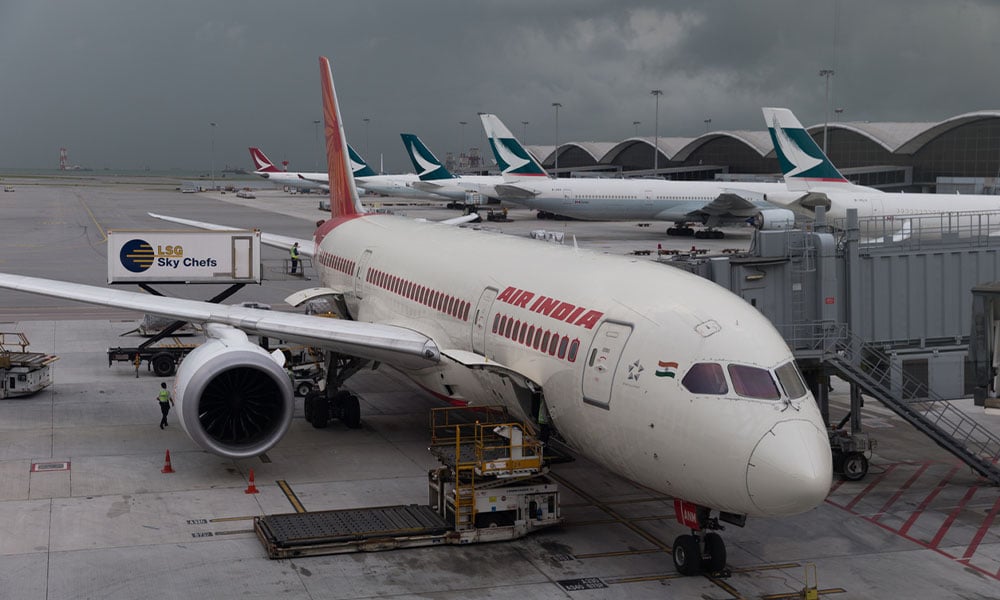
Defence need only establish 'reasonable possibility' late disclosure impacted trial fairness: Court

In a decision lawyers say clarifies the mens rea for bribing foreign officials under the Corruption of Foreign Public Officials Act (CFPOA), the Ontario Court of Appeal has set aside the convictions and ordered a new trial, finding the trial judge should have declared a mistrial over delayed disclosure by the Crown.
The appellants in R. v. Barra, 2021 ONCA 568, Robert Thomas Barra and Shailesh Hansraj Govindia, challenged their convictions under the CFPOA for agreeing to bribe the Indian Minister of Civil Aviation.
The Crown also appealed Barra’s sentence, requesting his two-and-a-half-years be increased to four, and asked the Court of Appeal to clarify the CFPOA’s mens rea requirement.
Before Justices Michal Fairburn, David Watt and Benjamin Zarnett of the Court of Appeal, Barra and Govindia raised six grounds of appeal. The Court allowed the appeal based on one: that the trial judge, Ontario Superior Court Justice Robert Smith, had erred in his decision not to declare a mistrial over the Crown's late disclosure.
“Whether or not to grant a mistrial is a discretionary remedy. It is often difficult to interfere with this discretion on appeal,” say Seth Weinstein and Naomi Lutes, who acted for Barra and jointly prepared statements to Law Times. “The Court of Appeal was very critical not only of the Crown’s conduct and ‘extraordinary relationship’ with its key witness, but was critical of the delayed disclosure, which only ‘dribbled’ out after repeated requests from defence counsel.”
The Court also criticized Justice Smith’s “overly narrow” focus, merely on the evidentiary value of the impugned evidence, say Weinstein and Lutes, both lawyers at Greenspan Humphrey Weinstein LLP, in Toronto.
“His view ought to have been broader – looking both to trial fairness and the overall integrity of the justice system, both of which were impaired in this case.”
Barra was co-CEO at Cryptometrics Canada Inc., which makes facial recognition software and was after a contract with Air India, an airline owned directly by the Indian government. Govindia was CEO of Emerging Markets Groups Holdings Ltd., which Cryptometrics retained to help negotiate and secure the Air India deal.
The bribery also implicated Nazir Karigar and Dario Berini, both employed by Cryptometrics. Karigar had already been convicted in 2017 for his role, and Berini acted as a Crown witness in the proceedings against Barra and Govindia.
The bribery occurred in two phases. The first involved $200,000 paid to an official in charge of contract bids and $250,000 paid to the minister, Praful Patel. After that, Patel got another $500,000 to seal the deal. Justice Smith was left with reasonable doubt as to whether Barra knew the initial $200,000 was transferred to a “foreign public official” defined by s. 2 of the CFPOA, but found Barra, Berini and Govindia had that knowledge with the other two payments.
At trial, counsel for the appellants sought an order declaring a mistrial, arguing the Crown had miscarried its disclosure obligations in relation to details of Berini’s arrangement with the Crown. Admitting disclosure was late, the Crown said the delay had not prejudiced the appellant’s right to make a full answer and defence, and notwithstanding, mistrial was a disproportionate remedy.
Though he did not grant the mistrial, Justice Smith excluded the evidence, deciding the appellants had not established on a balance of probabilities there was a “reasonable possibility” the late disclosure “affected the outcome or the overall fairness” of the trial, or their “ability to make full answer and defence.”
On appeal, Barra argued the late disclosure had an influence on his decision not to testify on one aspect of the case, his tactics in Govindia’s cross-examination and his approach to Berini’s evidence, the last being “a critical component” of the case against him and Govindia. The Court of Appeal was persuaded of the reasonable possibility that the delayed disclosure affected trial fairness and found Justice Smith erred in by not calling a mistrial.
The Court affirmed the principle that the defence must only establish “reasonable possibility” the late disclosure affected fairness of the trial and its outcome, say Weinstein and Lutes.
While the Crown said it would have no effect on the outcome of the appeal, it argued the case warranted clarification of the CFPO’s mens rea requirement.
Justice Smith’s finding the Crown had failed to prove Barra knew the $200,000 bribe was made to a foreign public official, falling short of the “necessary mens rea for an offence under s. 3 of the CFPOA,” relied on the 1921 Supreme Court of Canada decision in R. v. Smith, that the crime was a “specific intent offence.”
In R. v. Smith, the SCC found that “knowledge by the accused of the official character of the person to whom the bribe is offered is an essential element of bribery.” Justice Smith did not find Barra knew Air India was functioning on behalf of the state of India. The Court of Appeal found, to have the necessary mens rea, Barra “must know not only that the person was employed by the corporation, but that the corporation was established to perform a duty or function on behalf of a foreign state, or is performing such a duty or function.” Justice Smith did not err in this respect, the Court said.
“The ruling will certainly impact future prosecutions under this Act as there is now clarity on the mens rea requirement,” say Weinstein and Lutes.